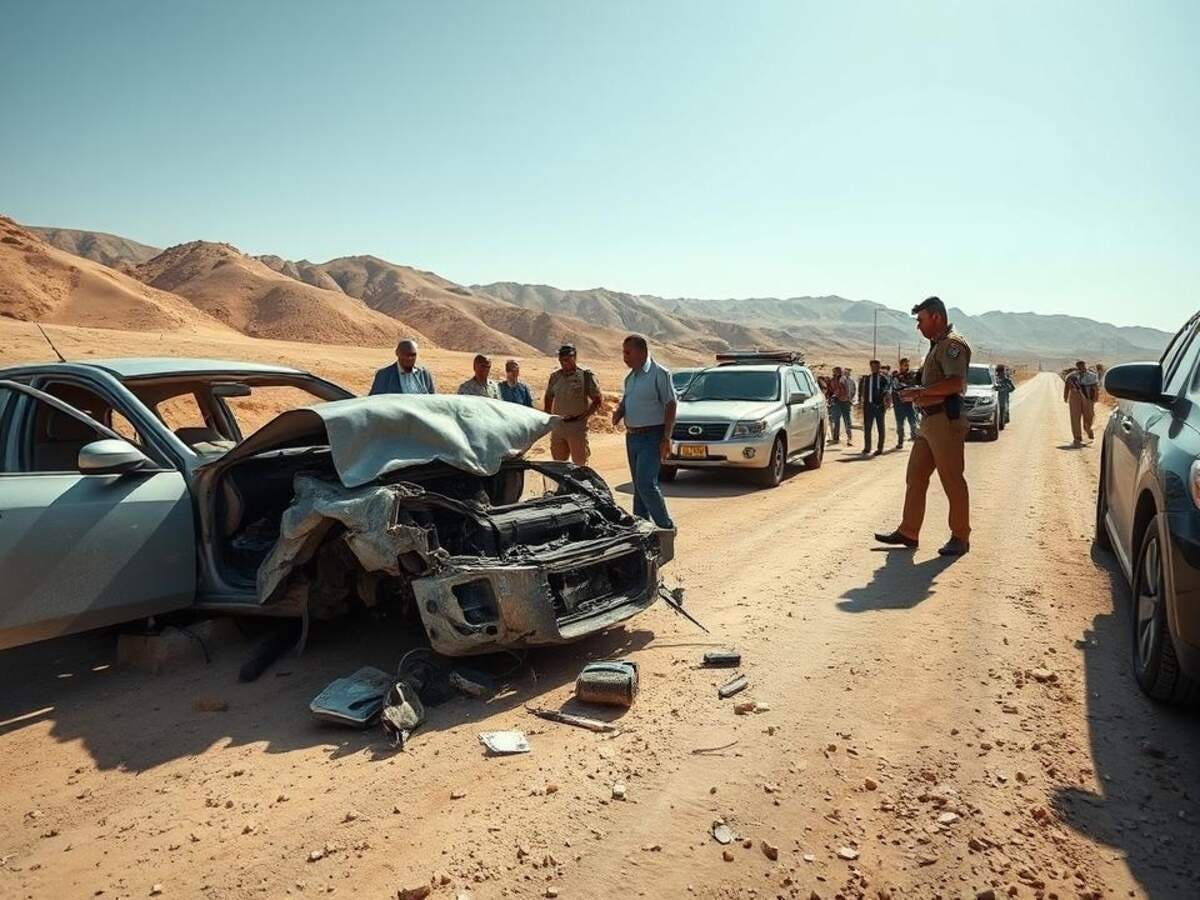The Diplomat’s Tragic End
How a Road Crash Exposes Geopolitics’ Hidden Human Cost
We often see diplomacy as a grand stage, but what happens when human frailty collides with geopolitical ambition? The devastating Qatari diplomat crash in Sinai pulls back the curtain, forcing us to confront the personal risks beneath the surface of international relations and reconsider the true cost of global engagement.
When the Abstract Becomes Brutally Real
I remember seeing the headlines about the Qatari diplomats killed in a car crash near Sharm el-Sheikh, and a jolt went through me. Not because of the diplomatic implications initially, but because of the sheer, brutal randomness of it. Here were people engaged in high-stakes international relations, yet their lives were ended by something as mundane and terrifying as a road accident. It’s a jarring reminder that for all the carefully constructed protocols and political theater, diplomacy is ultimately a human endeavor, susceptible to the same unpredictable dangers that touch us all. It tears down the invisible wall we often erect between the ‘important’ world of states and the fragile reality of individual lives.
The Unspoken Vulnerability of the Diplomatic Corps
We tend to envision diplomats as insulated, protected, living a life somewhat removed from everyday peril. But this incident reminds us that beneath the official titles and security details, there’s a profound human vulnerability. They navigate complex, sometimes unstable regions, often relying on local infrastructure that might not meet international safety standards. It’s a silent, constant risk that rarely makes it into official communiqués or policy debates. It exposes a universal human weakness: our tendency to abstract away the personal costs of grand endeavors. As Hannah Arendt might have observed, we focus on the ‘action’ of states, overlooking the ‘suffering’ of individuals caught within those actions, even indirectly.
“The ideal subject of totalitarian rule is not the convinced Nazi or the convinced Communist, but people for whom the distinction between fact and fiction (i.e., the reality of experience) and the distinction between true and false (i.e., the standards of thought) no longer exist.”
– Hannah Arendt
While Arendt spoke of totalitarianism, her emphasis on the erosion of reality resonates here: the diplomatic ‘reality’ often ignores the concrete risks faced by human bodies. This accident forces us to confront the human element in global affairs, reminding us that even the most routine tasks can carry an unforeseen, devastating price. It’s a powerful challenge to our collective blindness.
Go Deeper
Step beyond the surface. Unlock The Third Citizen’s full library of deep guides and frameworks — now with 10% off the annual plan for new members.
What This Tragedy Demands of Our Collective Empathy
So, what does this mean for us? It means we must cultivate a deeper, more active empathy for those who operate in these complex, often dangerous, international spaces. It’s easy to discuss geopolitics from the comfort of our homes, detached from the tangible risks. But when three lives are abruptly extinguished in an accident, it’s a call to remember the human faces behind the diplomatic communiqués. It reminds us that every policy, every mission, every engagement, is carried out by people with families, fears, and hopes, navigating a world that is inherently unpredictable. This isn’t just about Qatari diplomats; it’s about recognizing the human cost that underpins all international cooperation, urging us to question how we can foster a global culture that values individual lives as much as geopolitical strategies.
“The greatest need of a soul is to perceive itself in another’s pain.”
– Simone Weil
This incident, tragic and stark, pushes us to see the profound commonality of human vulnerability, transcending national borders and diplomatic status, and hopefully, fostering a more compassionate approach to our shared global existence.



